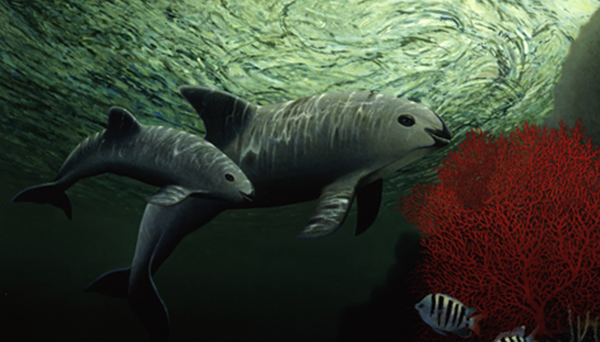Members of the CEC Council authorize the development of a factual record on the effective enforcement of environmental law regarding submission SEM-21-002 (Vaquita porpoise)
Tiohtià:ke (Montreal), 10 July 2024 — The members of the Council of the Commission for Environmental Cooperation (CEC), in Council Resolution 24-02, unanimously decided to instruct the CEC Secretariat to develop a factual record regarding submission SEM-21-002 (Vaquita porpoise). The submission asserts that Mexico is failing to effectively enforce the General Wildlife Act and its regulations as well as various federal environmental orders, with respect to the protection of the vaquita porpoise (Phocoena sinus) in the Upper Gulf of California.
Council Resolution 24-02 notes that on 1 April 2022, after having received the response from the Government of Mexico, the Secretariat recommended the preparation of a factual record. Having reviewed that recommendation and considered the Party’s response, the Council members have instructed the Secretariat to prepare a factual record that takes into account the relevant environmental laws and the actions of the Party in question to effectively enforce its national environmental laws, in particular Article 55 of the General Wildlife Act (Ley General de Vida Silvestre—LGVS) and Article 56 of the LGVS regulations, the 1975 Totoaba Fishing Ban, and the 2020 Gillnets Order.
The purpose of a CEC factual record is to provide an objective presentation of the facts relevant to assertions submitted under the Submissions on Enforcement Matters (SEM) process, and to allow readers to draw their own conclusions regarding a Party’s environmental law enforcement. The factual record is expected to generally outline the history of the environmental enforcement issue raised in the submission, the relevant environmental laws of the Party in question, and the actions taken by the Party to effectively enforce those environmental laws, thus serving as a valuable information-sharing tool.
For more information:
- Submission SEM-21-002 (Vaquita porpoise).
- Notification by the Secretariat to the Council pursuant to Article 24.28(1) of the USMCA that the development of a factual record is warranted.
- Reasons for Council instructions regarding submission SEM-21-002 (Vaquita Porpoise)
- Request for information for the development of a factual record related to submission SEM-21-002 (Vaquita porpoise)

About the CEC
The Commission for Environmental Cooperation (CEC) was established in 1994 by the governments of Canada, Mexico and the United States through the North American Agreement on Environmental Cooperation, a parallel environmental agreement to NAFTA. As of 2020, the CEC is recognized and maintained by the Environmental Cooperation Agreement, in parallel with the new Free Trade Agreement of North America. The CEC brings together a wide range of stakeholders, including the general public, Indigenous people, youth, nongovernmental organizations, academia, and the business sector, to seek solutions to protect North America’s shared environment while supporting sustainable development for the benefit of present and future generations
The CEC is governed and funded equally by the Government of Canada through Environment and Climate Change Canada, the Government of the United States of Mexico through the Secretaría de Medio Ambiente y Recursos Naturales, and the Government of the United States of America through the Environmental Protection Agency.
